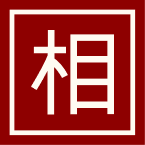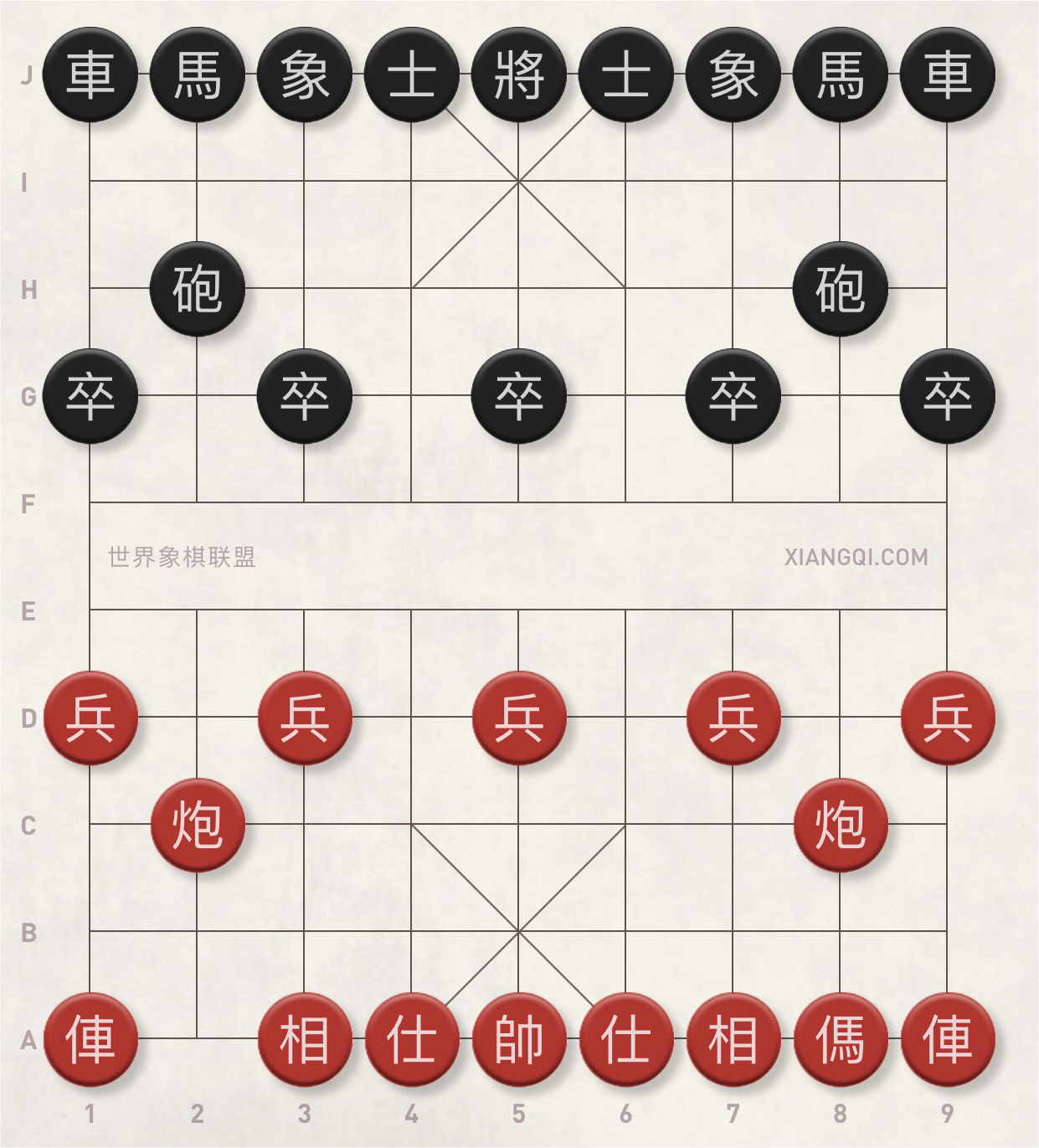Peng Shusheng, King of Xiangqi (Chinese Chess) in Northwest China Part 2
Author: Jim Png from XqInEnglish
Note: This article is a continuation of "Peng Shusheng, King of Xiangqi (Chinese Chess) in Northwest China Part 1."
Acknowledgement to Rick Knowlton of AncientChess.com
This article would be divided into the following topics. It is a condensation of the tributes paid to the legendary Peng Shusheng.
Hou Yushan lost in a handicap match
The Triple Hammer Horse Variation
Still going strong when over 70 years old
Hou Yushan lost in a handicap match
Peng was also able to play handicap matches against other Xiangqi experts in Beijing, most notably the young Hou Yushan (侯玉山 1911 -1993 hóu yù shān).
He gave up a horse against Hou Yushan. Hou Yushan was still a relatively young and inexperienced player when he played against Peng Shusheng. But he improved significantly after this encounter and gradually became recognized as one of the best in Beijing about two decades later. At the height of his fame, Hou Yushan was favored to win the first-ever Chinese National Xiangqi Individual Championships. He eventually placed in fifth place in the same tournament in 1956!. (1)
Peng Shusheng giving Hou Yushan a one-Horse Handicap Beginning Array
1. C2=5 H8+7 2. H2+3 P3+1
3. R1=2 R9=8 4. R2+6 H2+3
5. P5+1 E3+5 6. R2=3 H3+4
7. P5+1 P5+1 8. C8+3 H4+3
9. C8=5 A4+5 10. R9=8 C2=3
11. R8+7 R1=3 12. H3+5 H3+4
13. H5+4 H4-6 14. K5+1 C8+7
15. H4+2 R8+2 16. R3=9 H7+8
17. R8=7 R3=2 18. R9=8 R2=1
19. R7=9 R1=3 20. R8=7 R3=2
21. R9=8 R2=1 22. R7=8 R1=4
23. +R=5
Black resigned.
Peng Shusheng giving Hou Yushan a one-Horse Handicap final position
If Black played E7+5, Red would sacrifice another Cannon with C-+5 for the check. Black would be forced to use the Black Chariot to capture the Red Cannon, and Red would then checkmate with H2+3 or H2+4. If Black captured the Red Chariot with his Chariot, Red would checkmate with H2+3 or H2+4 immediately. (2)
More experts fell to Peng
News of Peng's success spread further. Soon, other experts like Xu Cihai (徐词海) from Shenyang, Zhao Wenxuan (赵文宣 zhào wénxuān) from Jinzhou, Qian Mengwu (钱梦吾 qián mèng wú) from Tianjin et cetera rushed to Beijing to play against Peng.
According to historical statistics, Peng battled Xu Cihai on several occasions, but his record against Xu was 6W1D1L. Xu Cihai's only victory was later published in a local newspaper at that time.
Peng had the advantage over Zhao Wenxuan with a 2W1D1L record. The two could not compete further as Zhao had only taken a few days to leave from his work.
Peng obliterated Qian Mengwu, and the author cannot find any actual records of their encounter except that Qian lost severely.
After his success in Beijing, Peng Shusheng earned the 'title' of Peng the Great (彭高棋Péng gāo qí).
The Triple Hammer Horse Variation
Peng was also a generous man. Before he left Beijing, he shared his experiences and gave the local pointers on how he played Xiangqi. He even taught them an opening variation that he had invented. Such an act was unheard of in his time, for Xiangqi players would often spend weeks and months perfecting individual variations to act as their secret weapons against other experts. After all, Xiangqi was their livelihood. Imagine sharing the secrets of your success.
(盖马三捶 gài mǎ sān chuí)
Final Position of Peng Shusheng’s Triple Hammer Horse Variation
1. C2=5 H8+7 2. H2+3 R9=8
3. R1=2 H2+3 4. P7+1 P7+1
5. C8=7 R1=2 6. H8+9 C2+4
7. P7+1 P3+1 8. H9+7 E3+5
9. H7+5
To help explain the intricacies of his opening, Peng Shusheng composed a poem which the author has translated to the best of his abilities:
右炮手中进左兵,马从九路起横行,
当门择道觑方便,七路安雷强渡惊。
The Right Cannon guards the Central File while the Left Pawn (Red's Pawn on the seventh file) is advanced. The Horse starts from the ninth file and develops horizontally.
Before the central Pawn is advanced, one must look at the possibilities. The mines are buried on the 7th file, and the Pawn is forcefully advanced across the river.
Peng Shusheng's Triple Hammer Horse Variation would later be refined by other experts of the 57 Cannons. Perhaps the most notable would be Grandmaster Liu Dianzhong.
Peng Shusheng established himself as a leader in Xiangqi circles. His string of victories in Beijing had far-reaching effects as the general level of play improved dramatically. His influence on Beijing was extreme, and he has left his mark.
Still going strong when over 70 years old
After his success in Beijing, Peng Shusheng returned to Gansu and continued his Xiangqi journey. He would influence many later players. The late Xiangqi Master Qian Hongfa (钱洪发 1936 – 1997, qián hóng fā) was inspired dramatically by Peng. Master Qian visited Peng to Gansu in the 1950s, where Peng gave him many pointers. Peng gave the young lad a two-move handicap match, which he won convincingly, leaving the young Qian in awe.
The following score was found in an autobiography of Master Qian Hongfa. The match took place in 1953 when Qian was in Gansu. Peng Shusheng agreed to a two-move handicap match against the young Qian. By this time, Peng was already a seventy-nine-year-old man!
Red started the match with C2=5 and H2+3.
Qian Hongfa (given 2 move handicap) L Peng Shusheng Initial Position
1. H2+3 H8+7 2. R1=2 R9=8
3. H8+7 P3+1 4. R2+6 H2+3
5. P5+1 C2+1 6. R9+1 P7+1
7. R2-2 E3+5 8. R9=6 C2=3
9. P5+1 R1=2 10. C8+2 P5+1
11. R6+5 C3+3 12. H7+5 C8+2
13. C8+2 C3=7 14. E3+1 A4+5
15. P1+1 P1+1 16. C8=1 H7+9
17. R6=1 P5+1 18. R2=5 C7=1
19. R5=2 R2+6 20. H5+4 C8=6!
21. R2+5 C6=5 22. A4+5 R2=7
23. H3-2 R7=3 24. E7+9 C1=2
25. E9-7 C2+3 26. K5=4 R3=6
27. K4=5 R6+1 28. E1-3 R6+1
29. H2+3 R6=7 30. H3+5 R7+1
31. A5-4 R7-3 32. C5+3 R7=5
33. A4+5 R5-2
Qian Hongfa (given 2 move handicap) L Peng Shusheng Final Position
Red resigned as Black's material advantage was only too much! In Master Qian's biography, it was said that Peng had felt that there were some areas where he had not played well enough, but the skill shown in the games was awe-inspiring for a man who was approaching eighty!
Master Qian would eventually settle in Lanzhou. He would later 'inherit' the title of King of Xiangqi in North-west China and become instrumental in the development of Xiangqi in North-west China. (3)
Unfortunately, there was no unified tournament when he was at the peak of his prowess. Nevertheless, when the first unified Xiangqi tournament in China was held in 1956, Peng Shusheng was invited to be the vice-Chief Arbiter of the tournament.
Some of the author's regrets
There are many Xiangqi experts in China, but Peng Shusheng was undoubtedly one of the greatest in his prime. No one could parallel what he did in Beijing. There were still some Xiangqi experts that Peng did not play against, like Xie Xiaxun, who was in Shanghai. Other players would include the Guangdong experts like the Four Heavenly Kings. Nevertheless, Peng Shusheng had left his mark in the history of Xiangqi and will be remembered by generations to come.
References
1. 象棋天地. 他能讓全國第五名一馬——西北棋王彭述聖. 每日頭條. [Online] Jan 21, 2017. [Cited: Dec 17, 2020.] https://kknews.cc/news/59yl4e3.html.
2. 亮晶晶象棋. 大國手彭述聖傳略. 每日头条. [联机] 2019年Oct月02日. [引用日期: 2020年Nov月24日.] https://kknews.cc/zh-tw/history/xg946ar.html.
3. 邹涛 和 李双胜. 西北棋王 钱洪发专辑. 兰州 : 甘肃人民出版社, 2017. 9787226052020.
4. 誇誇棋談. 北方八猛——那健庭. 每日頭條. [联机] 2018年Dec月15日. [引用日期: 2020年Dec月17日.] https://kknews.cc/zh-tw/news/ab4ybln.html.
5. —. 棋手 張德魁. 每日頭條. [联机] 2018年Dec月09日. [引用日期: 2020年Dec月17日.] https://kknews.cc/zh-tw/news/8q93j4n.html.
6. 张, 展. 象棋人生. 北京 : 经济管理出版社, 2012. 9787509621394 .







